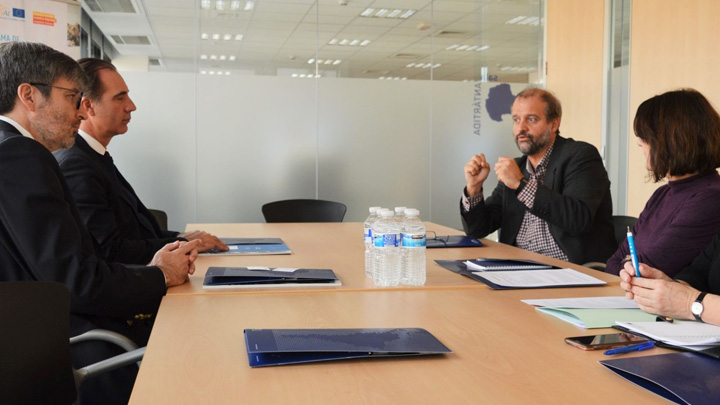The director of FIIAPP, Anna Terrón Cuisí, and the president of the IACtHR, Eduardo Ferrer Mc-Gregor, met in Madrid to face the challenge of strengthening the Euro-Latin American dialogue on fundamental rights

EUROsociAL+ is a programme based on the human rights approach as a guarantee to access to welfare with equal opportunities and without discrimination, by promoting sustainable public policies for social cohesion. Within this framework, this European Union cooperation programme, led by FIIAPP, and the Inter-American Court of Human Rights (IACtHR) have agreed on the opportunity to identify spaces for cooperation to promote those rights that contribute to a reduction in inequality gaps in Latin America.
A representation from the Inter-American Court of Human Rights, headed by its president Eduardo Ferrer McGregor, and the director of FIIAPP Anna Terrón Cuisí, accompanied by the EUROsociAL team and Judge José De La Mata, therefore held a meeting in Madrid to progress on issues such as: strengthening the Euro-Latin American dialogue on Human Rights; exchanging experiences and best practices with other European courts, mainly the European Court of Human Rights; and strengthening the connection between the Inter-American Court of Human Rights and the national jurisdictions of Latin America, with the aim of informing and promoting the application, at the national level, of the case law of the Inter-American Court, among other possible forms of collaboration.
The Inter-American Court of Human Rights is a judicial body pertaining to the Organisation of American States (OAS) whose objective is to apply and interpret the American Convention on Human Rights and other human rights treaties to which the so-called Inter-American Human Rights System is subject. For its part, the EUROsociAL Programme has worked on access to justice since its first phase, and this is now a priority field of action with a constant and notable demand from the justice institutions in Latin American countries, which view and recognise the added value of the Programme in this area, providing specialised knowledge on how to best protect certain vulnerable groups.



